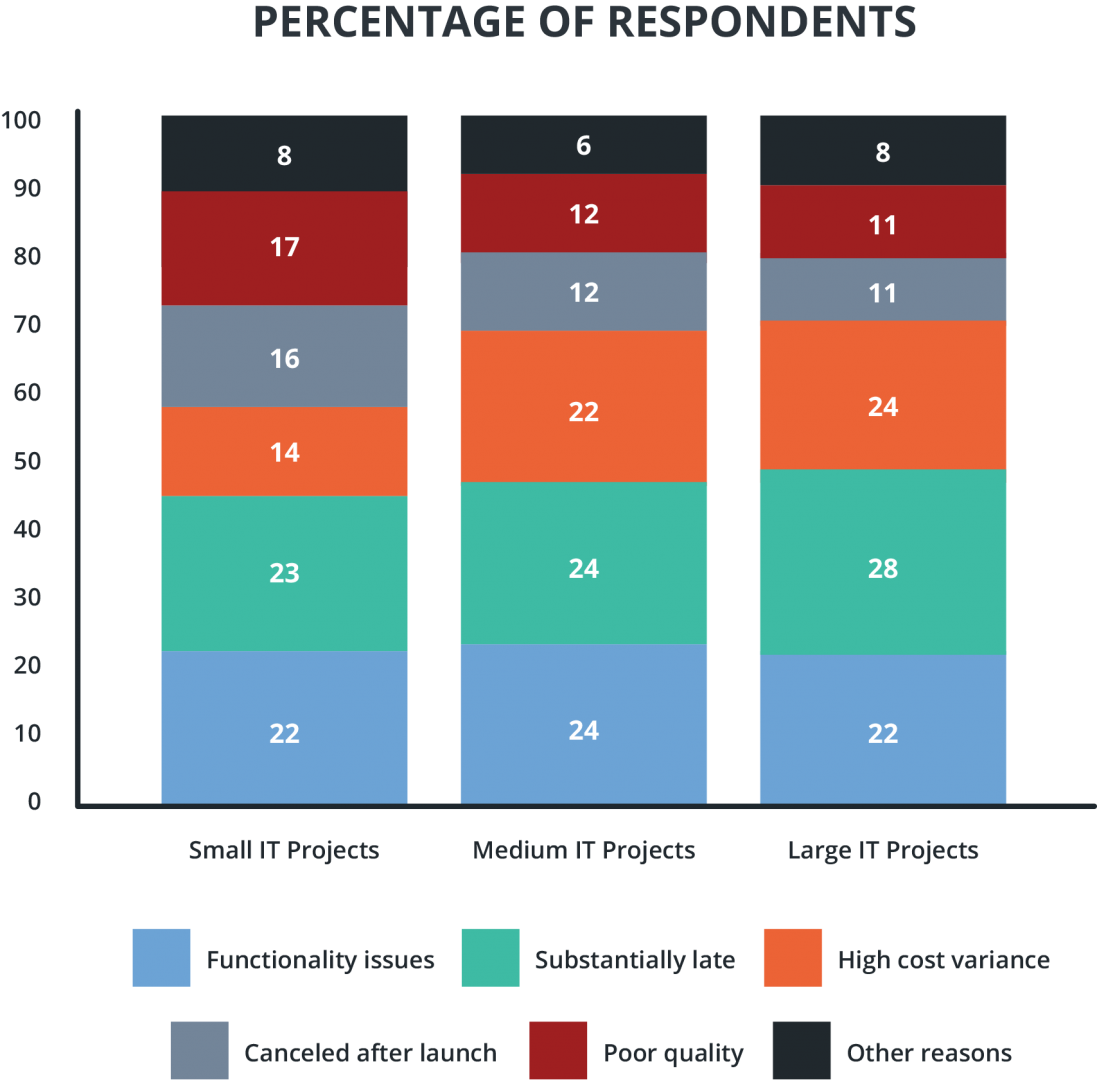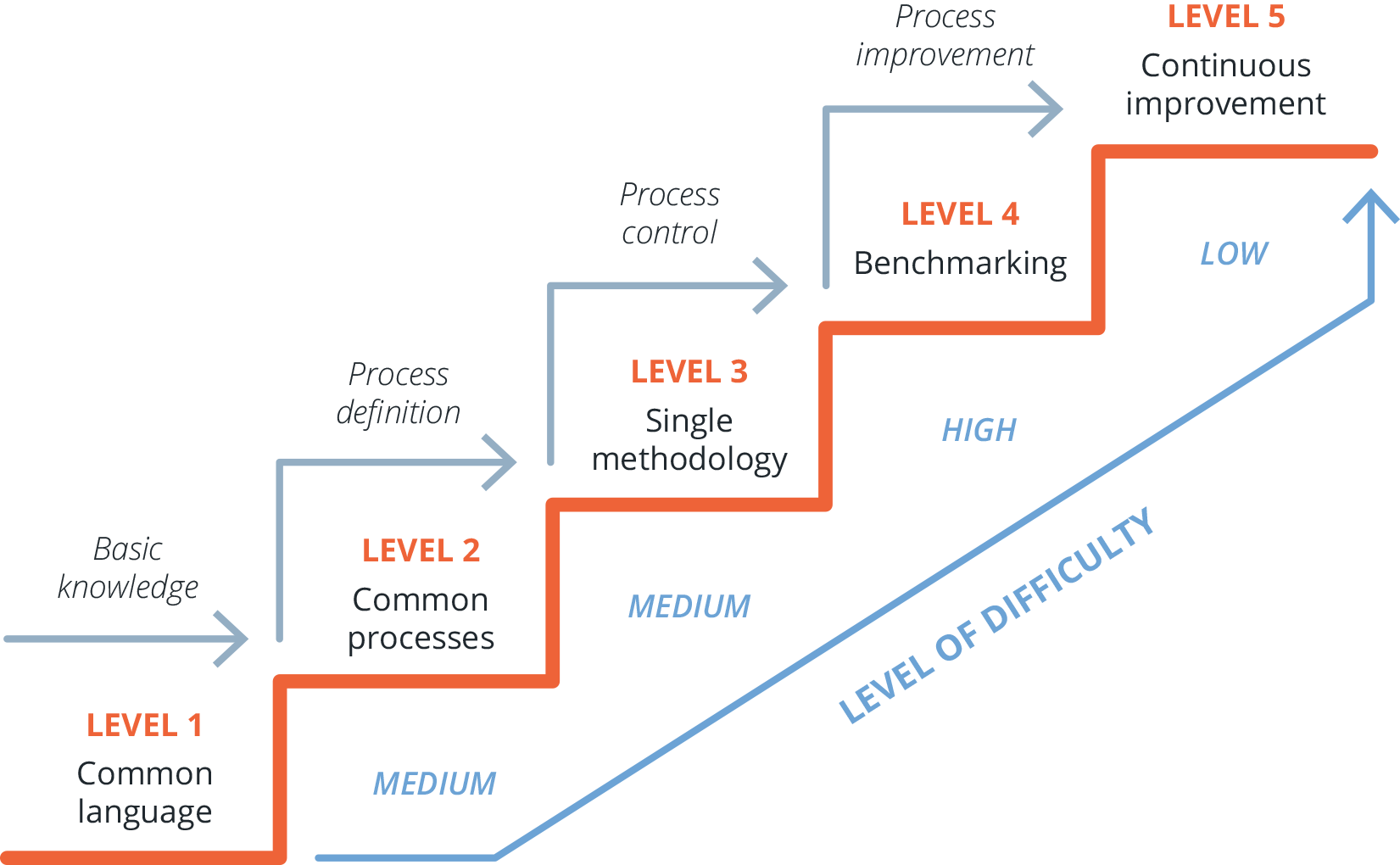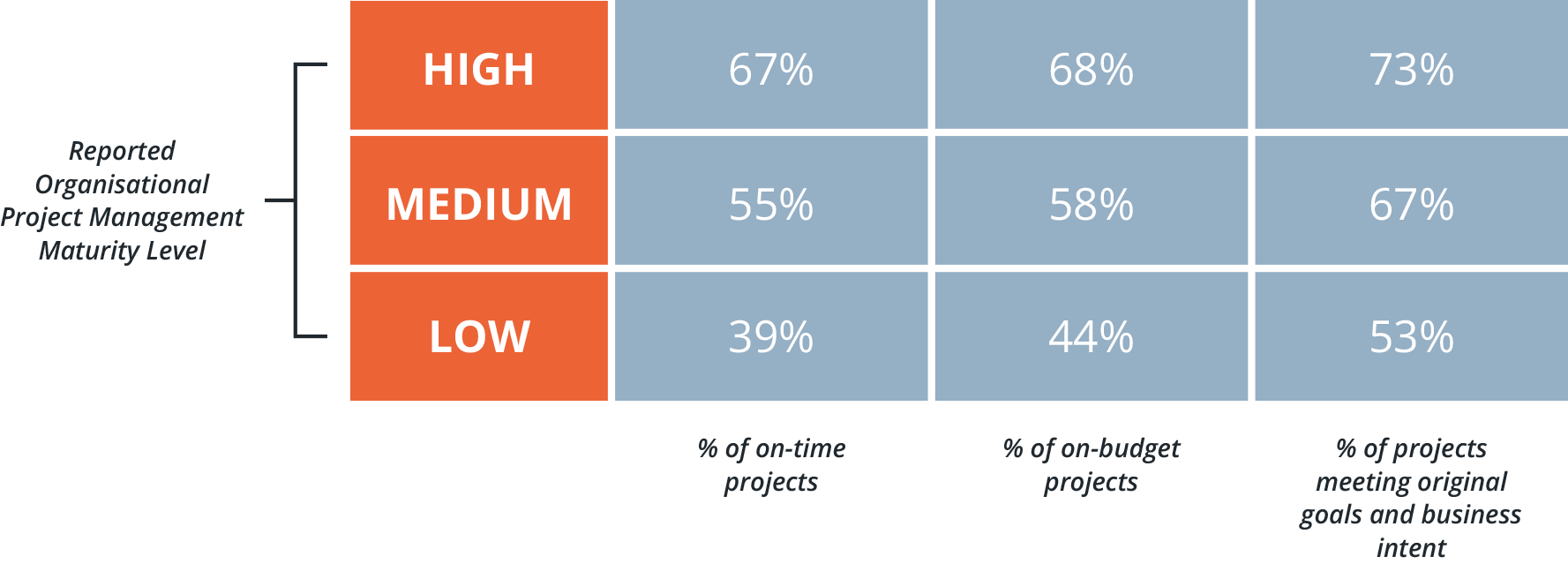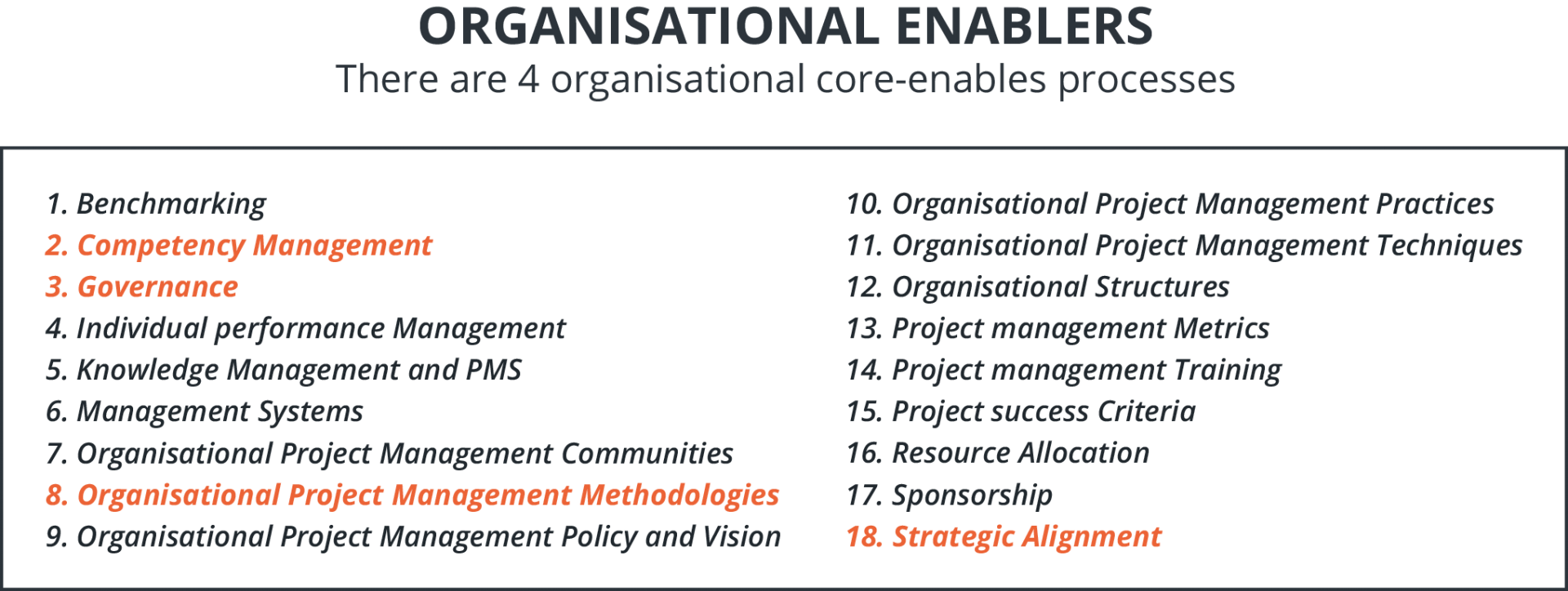This knowledge is brought to you by Phillip Mann, just one of the thousands of top management consultants on Expert360. Sign up free to hire freelancers here, or apply to become an Expert360 consultant here.
Let us know what you think of this article in the comments below. Is project management that important?
Table of Contents
- Introduction
- Project Management As A Modern Business Tool
- How Important Is Project Management
- Project Management Organisational Capability Development
- So The Value Of Project Management Is?
Introduction
“The value of effective project management to an organisation is not simply in the delivery of a single project, successful or not in that delivery. The value is in the development of the organisation’s capability in the fields of: Governance, Leadership, Teamwork and organisational efficiency. Once project management has become part of the culture of an organisation, the organisation becomes more adapted to understanding that modern work life is a series of self-managed tasks. These need to be completed in accordance with the project management philosophy of the Triple Constraint (On Time; To Agreed Cost; and As Specified). Thus effective project management development increases the capability of an organization in two ways: by changing the culture to goal orientated behaviour where progress can be measured in terms of Actual vs. Planned; and by providing staff with a basic set of knowledge and tools to undertake the tasks required.”
Project Management As A Modern Business Tool
Project management strategies have grown from management practices in engineering and construction, spread to Information Technology and now all business segments use project management to improve efficiency within their organisation. Project management is recognised by CEOs as an important tool within organisations. “An impressive 90 % of respondents surveyed by the Economic Intelligence Unit in 2009, say project management is either critical (47%) or somewhat important (43%) to their ability to deliver successful projects and remain competitive”. So why is project management so valued by CEOs? Could it be that project management brings more than just the delivery of a new organisational asset? To understand this, we need to understand the importance of project management to an organisation.
How Important Is Project Management?
Research has shown that organisations are improving their project delivery programs and this is reducing the amount of project failures and over-time and over-cost projects. Importantly it must be recognised that small reductions in over-time and over-cost projects can impact on an organisation’s ROI (return on investment) from the project and “opportunity lost by delay”. In effect while still being late/over cost, the project may have bettered the organisation’s effectiveness. Some control over the project can be seen as better than no control. Traditionally the notion of the value of project management is called the “Triple Constraint” - the trio of project controls of Cost, Time and Scope. Much research has investigated the causes of project failures. In the 1990s our understanding of why projects fail was limited to exploring the reasons why and instead was more about broad groupings of data segments. This graph (Fig.1) was produced in 1994 by the Standish Group in their report “The Chaos Report” - broad groupings with little detail of the data sub sets.
More recent research on projects explores the maturity of data subset identification. Gartner’s 2012 survey (Fig.2) indicates that analysis of project management now extends to more detailed data subsets. Analysis of this data shows that the Functions of Time and Cost are still issues and there appears to be less emphasis on the Satisfaction elements of the graph. This is consistent with the project management industry’s efforts on Scope management and Stakeholder management over the past 10 to 15 years through the introduction of the process of Value Management. Value Management is the methodology of ensuring projects obtain the best Value from their undertaking. While adopted from manufacturing and refined since the late 1990’s Value Management seeks to understand the key drivers of the benefits of projects and seeks to ensure key stakeholder agreement. Used predominately in the Construction industry in the early 2000s this has spread to IT projects and the Agile form of “User Stories”.

It can be argued that Figure 2 is showing organisational weaknesses in the management of cost and the management of activity. This goes with the notion that improving organisational assets such as governance systems for managing time and cost will contribute to better management of projects. Much thought has been applied to researching the value of project management. In their 2007 paper, “Understanding the Value of Project Management: First Steps on an International Investigation in Search of Value” by Janice Thomas and Mark Mullaly, there were Five areas of Value identified:
- Satisfaction
- Aligned Use of Practices
- Process Outcomes
- Business Outcomes
- Return on Investment
While not ranked in any particular order, these values extend beyond the Triple Constraint notion and suggest that a well implemented project management system in an organisation contributes more to the organisational capability than just the temporary organisation used to deliver the project goals. Therefore an organisation can be measured to place performance metrics on these Values with the notion that the higher the metrics of the Value, the more value Project Management is to the organisation. Thomas Mengel, Kathy Cowan-Sahadath and Friedbert Follert, in their paper; “The Value of Project Management to Organizations in Canada and Germany, or Do Values Add Value? Five Case Studies” reported on the maturity of the project management implementation: “Project management contributes to the departmental culture and to the larger culture of the overall organization; if project management is not well adjusted to the organizational culture and/or to the various degrees of complexity of the projects to be conducted, it is again likely to be faced with resistance”. Their conclusion is that the better the implementation of project management within the organisation, the stronger these identified Values are and the better the organisational performance. In Figure 3 we can see the 5 levels of project maturity as developed by Kerzner and adopted widely.

The increased value of project management in an organisation that has a mature project management implementation extends beyond the notion of the Triple Constraint and is now influencing the culture of organisations. This is shown as a trend to change the culture of an organisation, to lift the efficiency of general administration of work and set a clear focus on stakeholder satisfaction, particularly the End User stakeholder. We can see that the maturity model requirements are consistent with the findings of Thomas and Mullaly and their 5 Values.
Project Management Organisational Capability Development
Starting the development of increasing project management capability in an organisation is a daunting task for many organisations. Too many “Consulting Organisations” have solutions that amount to nothing more than employing a contractor for a period to try to import knowledge. While this may be temporarily successful, much depends on the knowledge of the contractor. While many contractors have detailed experience in delivery of projects, can this be directed to improving organisational maturity in project management? An alternative to throwing expensive resources into a “quick fix” is to understand the maturity models developed by the project management industry from academic research. These models outline the maturity requirements that need to be met to drive an organisation’s increase in capability in project management. If we consider the development of a maturity program for project management within an organisation as directed by the Project Management Institute’s OPM3 Model we can see that the recommendation is to.

Industry experience and Doctoral research by the author has concluded that optimising the development of project management services is most successful when the organisation develops a strategy plan based on benchmarking the organisational capability and directing the maturation strategy. The first 2 points of the OP3M model are vital for this function.
- Standardise - ensure the processes are the same across the organisation
- Measure - audit the processes to evaluate maturity level
This allows them to benchmark the organisation against industry standards and allow for a capability improvement plan to be developed. The OPM3 context of Control is the management of the capability improvement plan. While this strategy is straight-forward the issue many organisations find difficult is in the implementation.
Driving Optimisation Of Project Values
If we understand the notion that increasing the value of project management comes from a mature implementation of the project management system, what can increase the maturity of the project management implementation? While there is much to do about policies, processes and training, singularly the two most effective actions that can be taken are:
- Recruitment of knowledgeable and experienced project managers to lead the change in culture.
- Establishment of a Project Management Office to manage the common processes, the single methodology, enterprise reporting, organisational project management knowledge holder and leading of project managers.
Figure 4 shows research on maturity and project statistics. This graph represents the notion that increased project management maturity increases the percentage of projects meeting their Triple Constraint Goals.

Research has identified that these two actions will drive the maturity of the organisation by the adoption and effective use of mature project management processes and tools.
Recruitment of knowledgeable and experienced project managers to lead the change in culture
Many organisations develop a PMO and staff the PMO with low level project analysts, effectively reducing the role of the PMO to reporting on information provided from project managers. In line with the goal of increasing the organisational maturity of project management, the PMO should be led by an experienced PMO Manager: a Senior Project Manager in the areas of project planning and project delivery. This will give the organisation the best chance to grow maturity through the PMO Manager working with and training existing project managers to increase their project management capability. A rule of thumb in this situation is that the PMO Manager should be more experienced and knowledgeable in project management than most of the organisation’s top project managers. If the PMO Manager’s knowledge is less than this, the organisation is most likely to have cultural issues in maturing their project management services. The PMO Manager should be seen as an internal consultant with expert knowledge. It is recommended that a PMO Consultant with extensive experience be brought in initially to develop the capability improvement program, train a PMO Manager and support the PMO Manager over the next 12 months on a part time basis. Senior Project Managers have experience in projects and are extensively educated and may be certified by the project management industry. Too often we see technical experts, who have worked on projects claim to be senior project managers. Often these personnel are really technical experts who dabble in project management. A Senior Project Manager has a master’s qualification that specialises in Project Management: A Masters of Project Management or an MBA with a project management specialty. Often, they have a specialist certification such as the Project Management Institute’s PMP (Project Management Professional).
- A Senior Project Manager typically holds a Masters Levels qualification, and at least 15 years’ experience as a project manager, with at least 5 years Post Masters Qualification date.
- Certifications such as a Diploma of Project Management or a Prince2 Practitioner are entry-level practitioners’ qualifications and many years of experience in complex projects are required to elevate these personnel to Senior Project Manager.
Developing a PMO Strategy
This strategy must include development of the 18 organisational enablers. This list is a “to do list” for organisational capability development in project management.

The consultant you select to lead your PMO should be able to develop the organisation in these areas. Having experience in project delivery is not enough. A background in developing organisational capability in project management and successfully having implemented a series of PMOs is important. The initial investment is assessed by the benefits gained to the organisation will be a more expedient improvement in project management capability and less overall cost than employing a consultant to perform delivery functions. Many organisations have tried the low level PMO manager to drive the capability improvement only to find this path regularly fails.
Employing The Right PMO Consultant
It should be recognised that improving organisational project management services through the maturity process that utilises a PMO will struggle to find a suitably qualified full time employee. These individuals are usually in consulting and are limited in number. A suitable alternative is to engage a suitably qualified consultant for a limited tenure (up to 12 months) to: Develop the strategy plan to:
- Standardise process
- Assess organisational maturity in project management
- Identify improvement areas in:
- Organisational project management policies, procedures and methodology
- Organisational project managers’ level of knowledge
- Organisational project governance
- Organisational project reporting
- Exit strategy for Consultant to hand over:
- Business as usual to the PMO Team
- Advise on the appointment of a manager for the PMO who can maintain the strategy implementation
- Periodic audit of maturation process
So The Value Of Project Management Is?
The value of project management lies in how the implementation of the concept of project management changes the culture of the organisation. Change is hard on organisations, however most organisations’ personnel would acknowledge that the adoption of project management is required in today’s business environment. This is the first level of Change Management requirements: the reason for change is accepted. By utilising the implementation of the maturation of project management, the organisation has the opportunity to change the organisational culture to a goal orientated and process driven culture. No matter what level of project management maturity, this becomes an ongoing, continuous improvement focus. Out of the concept of the requirement to meet the Triple Constraint notion an organisational change opportunity has materialised. However, a word of caution, project management maturity is tied to process and leadership. Knowledge transfer must become part of the cultural norm and is completed by recruiting and developing expert project management staff. It is the author’s recommendation that organisations look at short term contracting of highly qualified and experienced personnel in the areas of:
- PMO Consultant to lead organisational capability development. To establish the PMO in culture, policy and procedures. Typically, a 3-month initial engagement with additional 1 day per week for up to 12 months to support appointed PMO Manager
- Senior Project Managers, as described above, to lead the Project Delivery process. Understand that what they bring is not only project delivery but also the chance to lead cultural change. Pick wisely on these appointments as your organisation has much to gain from this serendipitous occurrence.









